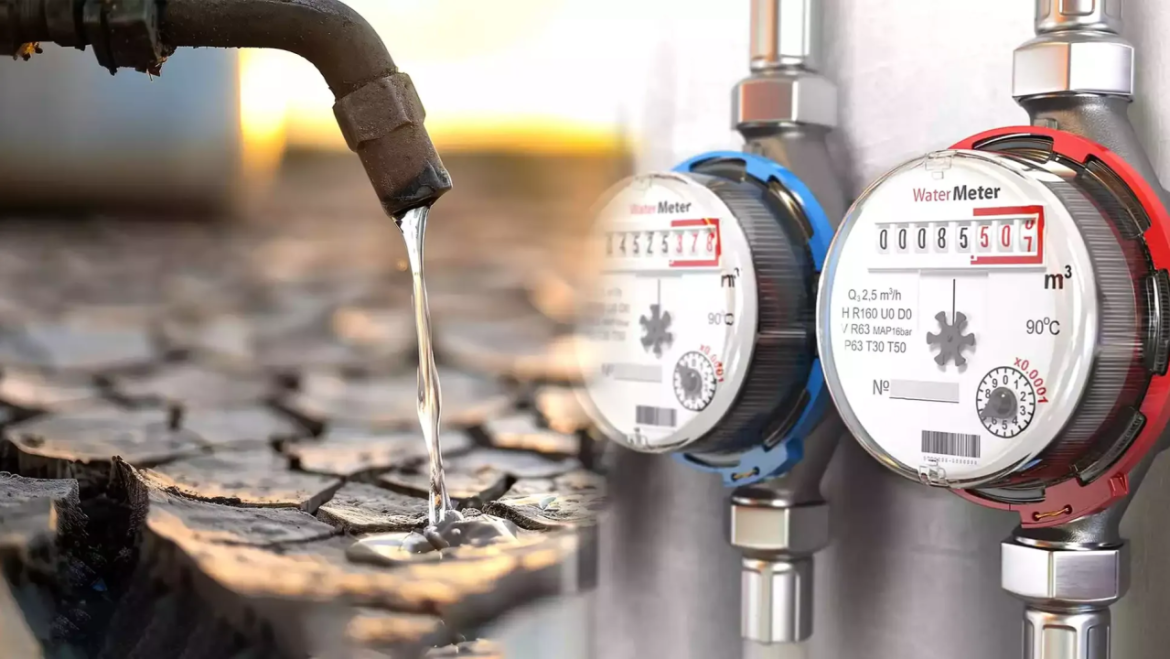Harare Mayor Jacob Mafume has announced that the city is moving full steam ahead with its smart water meter project, despite resistance from residents who say the plan could deny low-income households access to water. The project, which is expected to be completed before the end of the year, involves the replacement of old and inefficient water meters with modern prepaid smart meters.
Speaking on the sidelines of a Town House meeting on Monday, Mafume said the new meters will improve water billing accuracy, help detect leaks early, and contribute to better water management across Harare. So far, about 15,000 households have already benefited from the pilot phase of the programme.
“The water meter project is now on the ground. Agreements have been signed, and the meters — made in China — will soon be imported for the full rollout,” the mayor said. “By year-end, we expect major progress in water availability, quality, and billing accuracy, along with rehabilitation of our water treatment plants.”
He confirmed that the project will go hand-in-hand with the replacement of old asbestos and zinc pipes, many of which were installed several decades ago. Work will also be done to upgrade infrastructure at Morton Jaffray Waterworks, the city’s main water treatment facility.
But while city authorities believe the project will modernise Harare’s water supply system, residents’ groups are not convinced. The Harare Residents’ Trust (HRT) and other civil society organisations have openly rejected the move, describing the installation of prepaid water meters as unfair and unconstitutional.
The HRT said in a statement that the prepaid meter rollout was “shortsighted, ill-advised, and reactionary,” arguing that it fails to address the root problems affecting water service delivery and billing. “Access to water is a constitutional right. Prepaid meters will exclude the poor and worsen inequalities,” the group said.
Residents fear that being forced to pay before accessing water could make the basic resource unaffordable for many families already struggling under Zimbabwe’s harsh economic conditions.
This is not the first time prepaid water meters have sparked controversy in Zimbabwe. In 2014, the Bulawayo City Council was forced to cancel a similar project after public protests and backlash from residents.
Still, the central government is backing the Harare rollout and has indicated plans to expand the prepaid meter initiative nationwide, starting with the capital.
In another issue addressed by Mayor Mafume, he warned residents against illegal construction, urging them to get all necessary documentation before building. “We urge people to secure solid ownership papers and building approval from city inspectors. This will help avoid pain, tears, and demolitions later,” he said.
Mafume added that many unapproved buildings are not only unsafe, but also often collapse and cause injury or death. He emphasised the need for proper city planning and building standards.
Meanwhile, Local Government Minister Daniel Garwe has also spoken out against illegal land sales, calling for stronger collaboration between the City of Harare and the national government to crack down on land barons.
“Council must not be intimidated by people who use political connections or name-dropping to block inspections,” Garwe said. “Any illegal buildings or houses should be demolished as soon as construction starts.”
Land barons — often politically connected individuals who sell land without authority — have been a long-standing problem in Harare. Many residents have lost their savings after buying plots that are later declared illegal.
As Harare moves forward with the smart water meter project and urban reforms, the challenge for authorities will be to balance modernization with the protection of basic rights — especially for the poor and vulnerable who rely on public services the most.
